It is a universal truth, proved almost without exception, that children who are pushed prematurely into the public eye as performers seldom enjoy the same acclaim or fulfilment in adulthood.
And yet the parent keep pushing them.
Read here.
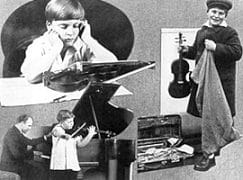
It is a universal truth, proved almost without exception, that children who are pushed prematurely into the public eye as performers seldom enjoy the same acclaim or fulfilment in adulthood.
And yet the parent keep pushing them.
Read here.

That’s the case made by Andrew Ford in his assessment of the slow disappearance of Tasmanian-born Eileen Joyce.
A heartthrob in the Second World War, Joyce’s diary got thinner after she played the soundtrack in the movie Brief Encounter. The highbrows of the music business wrote her off, or so Ford contends.
Read on here.
There is, however, an alternative narrative. Joyce, with a safe repertoire, faced tougher competition after the war, both from more adventurous pianists and from the new wave of modernists, whom she never touched.

Karen Brooks Hopkins, President Emerita of Brooklyn Academy of Music, shares some of her bleak nights.
Sample:
8. The “We-Are-So-Sorry-But-We-Decided-To-Stop-Funding-The Arts-After-All-There-Are-So-Many-Needs-Out-There-Especially-In-The-Current-Political-Environment” Donor. OK, OK. We get it. We know there is mayhem everywhere, and the needs are great, from defending Planned Parenthood and civil liberties to fighting global warming and malaria. The human race is in real trouble. But can we all take a deep breath (not in any way forgetting these issues), and just consider history for one moment? The human race has always been a disaster, and what is, in fact, the only thing that endures as a positive symbol of the worth of humankind? Art. From Sophocles to Shakespeare to Da Vinci, Mozart to Jane Austen to Alvin Ailey and beyond, art represents the best of our presence on this planet. Today, arts funding from the public sector is 20 percent lower than 20 years ago. And in the private sector, the arts are the recipient of only 5 percent of philanthropic dollars. Hey, donors: I know you are swarmed, but can you just try to see the big picture, here? Without the creativity of a vibrant arts community, the situation is just going to get worse….

Read on here.
When Nikita Khrushchev was toppled by the Kosygin-Brezhnev putsch in October 1964, he became an non-person. Send to live in his dacha, far from Moscow, he was abandoned by all his former friends. A year later, he was sent to live in an even smaller dacha to intensify his isolation.
Khrushchev’s daughter, Rada Adzhubei, relates on the Emil Gilels memorial site that the number of visitors her father received after leaving office could be counted on the fingers of one hand. People were warned off from having anything to do with the fallen leader.
Among the few visitors was Emil Gilels and his wife, Farizet. Risking official sanction, they refused to allow a Soviet edict to interfere with their human relations. It took courage. Gilels was a brave, good man.
Read here (in Russian).
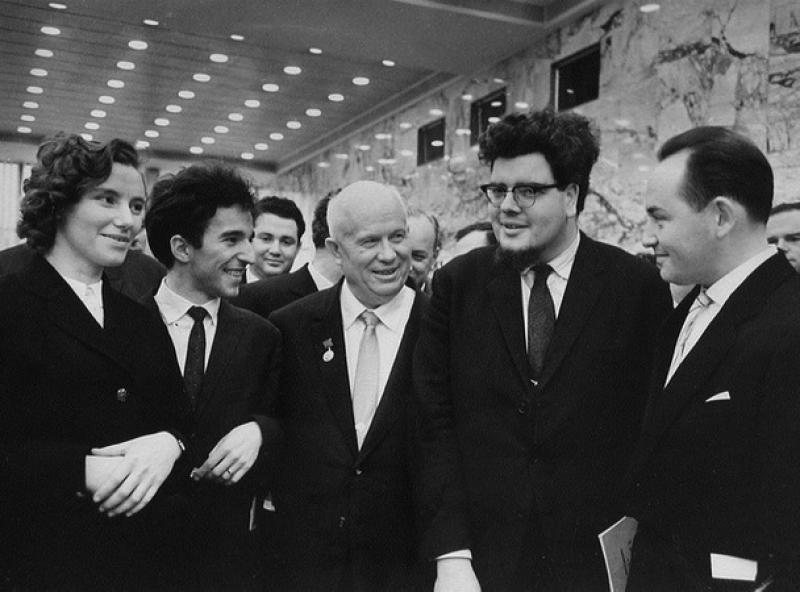
Khrushschev (in power) with pianists
Sergei Stadler and the St. Petersburg Symphony Orchestra have applied for recognition in the Guinness World Records for performing all of Beethoven’s symphonies in a single day. They are not the first.
I distinctly remember Lorin Maazel pulling off the same feat in London in December 1988 as a charity stunt. He switched shoes for trainers before hitting the Ninth.
And here’s another full set in a day by Martin Brabbins.
Nothing new under the sun.
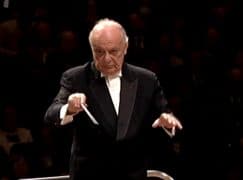
Hot on the heels of Jonas Kaufmann dumping Moscow, Diego Flores has told Budapest he won’t be there to sing in the New Year.
His cancellation is at such short notice that no substitute has been found and the MUPA hall will be dark on one of the biggest nights of the year.

The tenor is ill, says concert agency Ildar Bakeev Entertainment.
He will be replaced by Cardiff finalist Kang Wang and Bolshoi soloist Ekaterina Morozova.
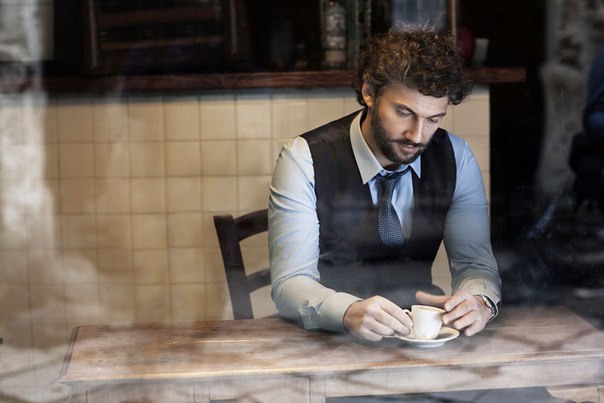
UPDATE: Florez cancels Budapest’s New Year.
A year ago, the International Music Foundation of Chicago booked cellist Sebastian Bäverstam for their Dame Myra Hess Memorial Concerts on January 10.
A few days ago, just before Christmas, they told Sebastian to change his arrival date to the day before the recital.
Since Sebastian had booked non-refundable tickets for the cello and himself months in advance, he replied that he was unable to do so. Sorry, said Chicago, we’ll get another cellist.
Sebastian is now $1,000 out of pocket and steaming at Chicago brutality. He is still listed on the concerts calendar and has received no reply from IMF to his emails.
The Dame Myra Hess Memorial concerts are run by Mark Riggleman, a former education director at Lyric Opera, with an artistic committee.
They owe Sebastian a refund and an apology.
Until these are forthcoming, soloists are advised to beware Chicago’s IMF.

UPDATE:
You can read below a comment from Mark Riggleman, presenting a different account of events, and another from Sebastian claiming that Mark did not respond to his concerns or reply to his emails. Clearly, communications between the presenter and the artist (or his agent) were some way less than desirable.
Our American violinist in Berlin, Anthea Kreston, hits the end of a tough year.
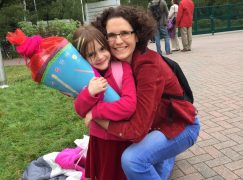
The Danes are a happy, open people. They say the happiest on earth. Spending six days in Copenhagen with my family, we felt more at home than in any city (yet) in Europe. It is like the Portland of Europe. Lots of stunningly pierced and tattooed moms and dads, babies strapped across chests, passing nooks with all manner of foods for sale, book stores, crazy thrift stores, and smiling people aboard city buses, enroute to Tivoli gardens or the living rooms of friends. We decked our little rented apartment out in the teeniest Christmas tree in earth, which we decorated with homemade ornaments.
The Danish concept of hygge, according to the Oxford Dictionary, is “coziness and comfortable conviviality that engenders a feeling of contentment or well being.” This has always come natural to me – everywhere I live I put Christmas lights around the ceilings year-round, the walls are crowded with vintage maps, a pot of some sort of mushy vegetarian thing bubbles on the stove, couches and beanbag chairs are draped with cosy blankets, fireplace glowing. Candles are on the table, tea in the pot, and books are balanced on various surfaces. Our door is always open – we love a full house (our guest room is rarely vacant – our most recent visitor from Corvallis stayed 10 days).
So, hygge (pronounced “hue-guh) follows me. It is this part of me that slowly disappears during tour, my head hitting the pillow of a sterile hotel room more often than I would like – it is hard to keep balance, to remain yourself and have enough of the things that add up to your personal happiness trail mix. But I will work on this when work restarts. I don’t know how to do it – and the balance slips away so slowly that one day, you look into the mirror and notice it is all gone – but now I will try to bring it with me, somehow. Maybe I will bring my knitting with me, sketch book – drink more hot cocoa?
In the meantime, I am savoring my final days as a mom – our Staycation in Berlin includes lots of museums, bakeries, cooking, and dinners with friends. Yesterday was the Espionage Museum, where I even took a turn going through the laser parcourse – tucking in my sweater, I crawled and wriggled my way between the green fingers of lasers as my family jumped and screamed. So now I will trade in my hygge for a little bit of the old gemütlichkeit – spiced warm red wine, anyone?
The president of Armenia, Serzh Sargysan, called in the visiting pianist for a meeting yesterday.
He thanked Evgeny Kissin for being one of the few world artists to commemorate the centenary of the Armenian genocide, an atrocity still denied by its Turkish neighbours.

Rehearsal shots for the New Year’s Day from Ben Lea, VPO violinist:
More images pic.twitter.com/TgjjOUnmjI
— Ben 🎼🎶 (@BenLea66) December 28, 2017
Who’s the fiddle with the Leica, bottom left?
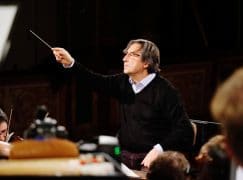
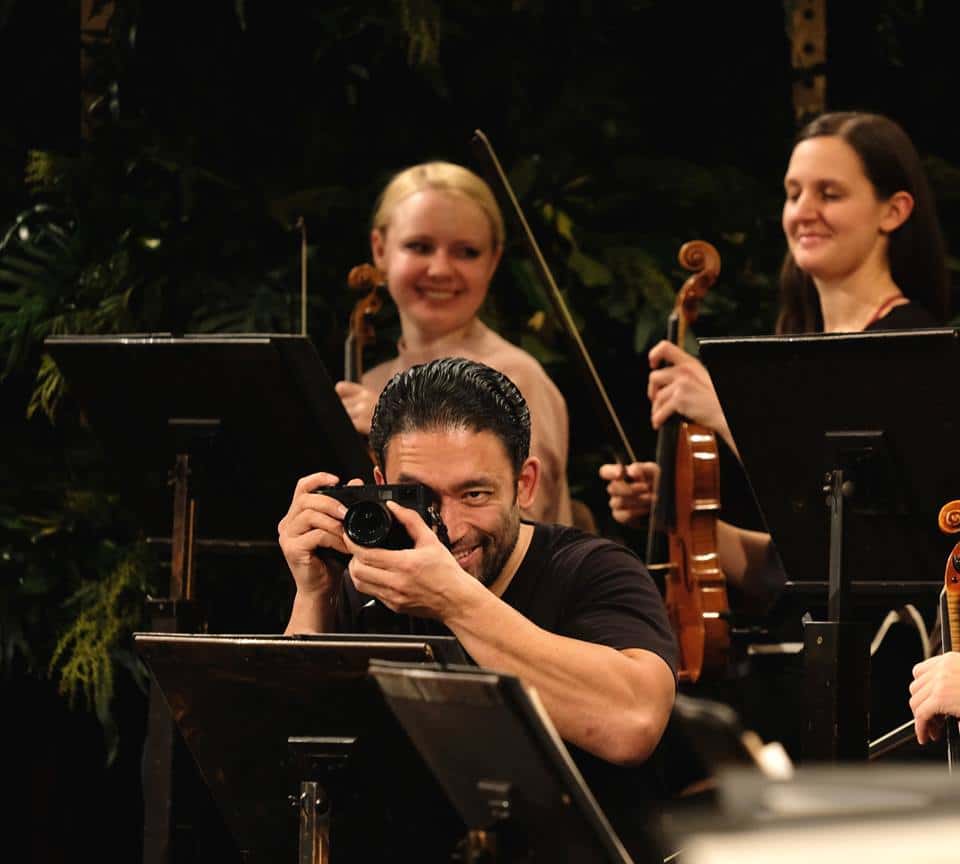
Ferenc Tarjáni died in Budapest on December 27.
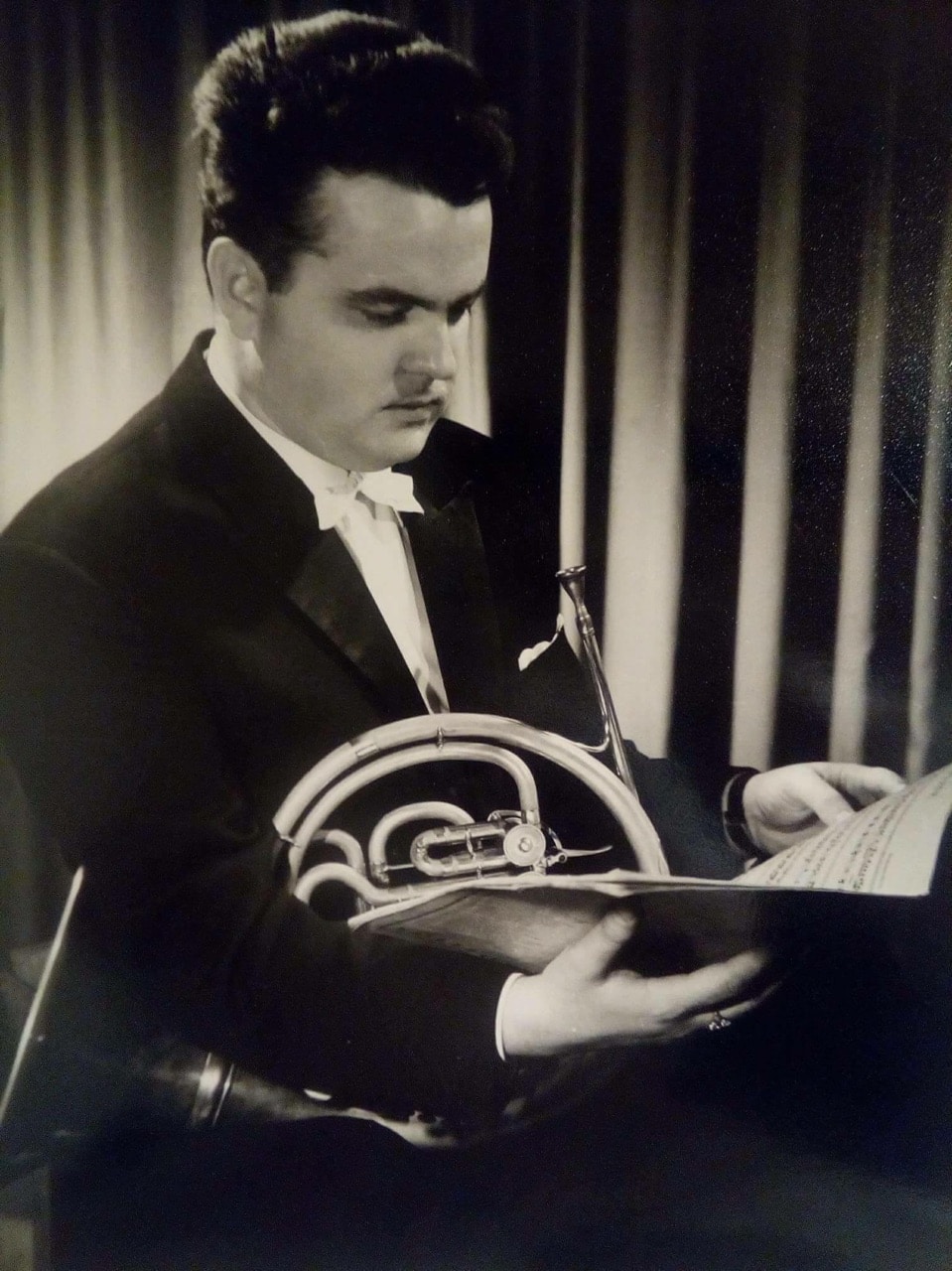
A member of the Hungarian Wind Quintet, he was co-principal of Hungarian Radio Orchestra and professor of horn at the Liszt Academy of Music. Widely recorded, he was the foremost Hungarian hornist of his generation.